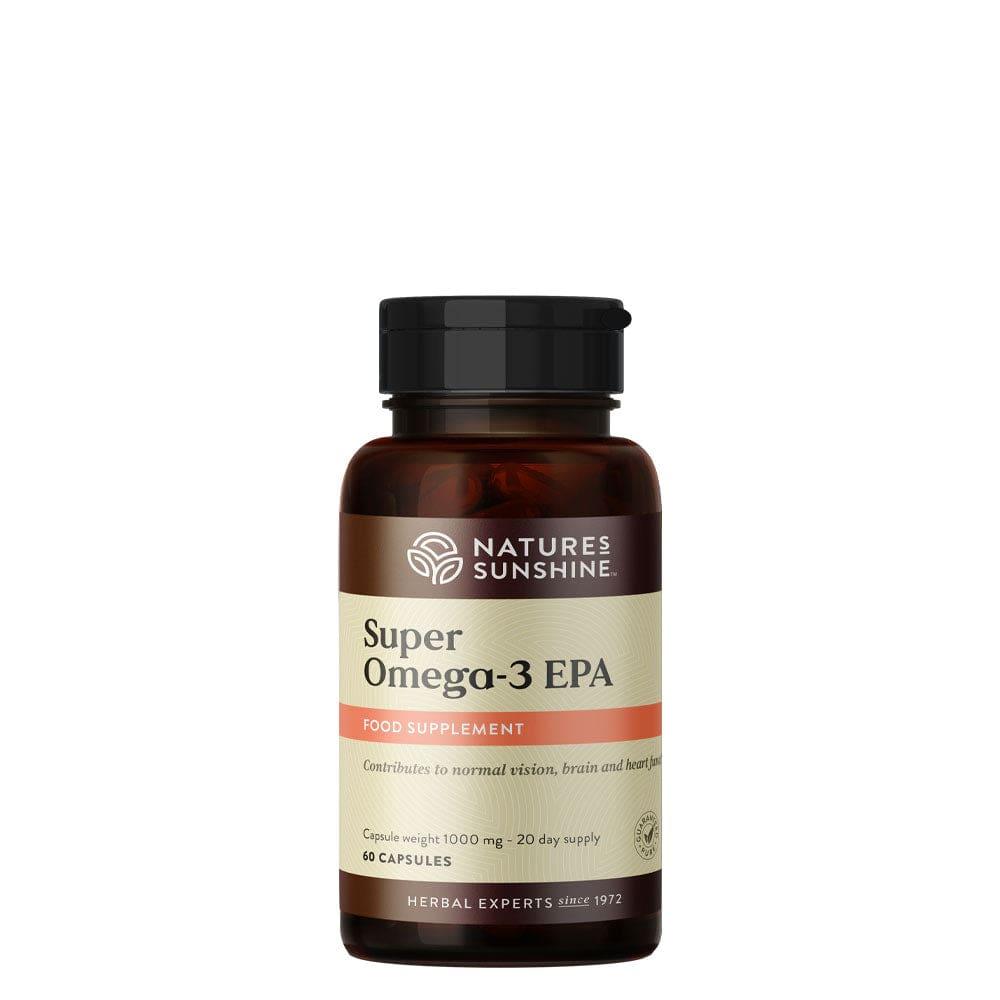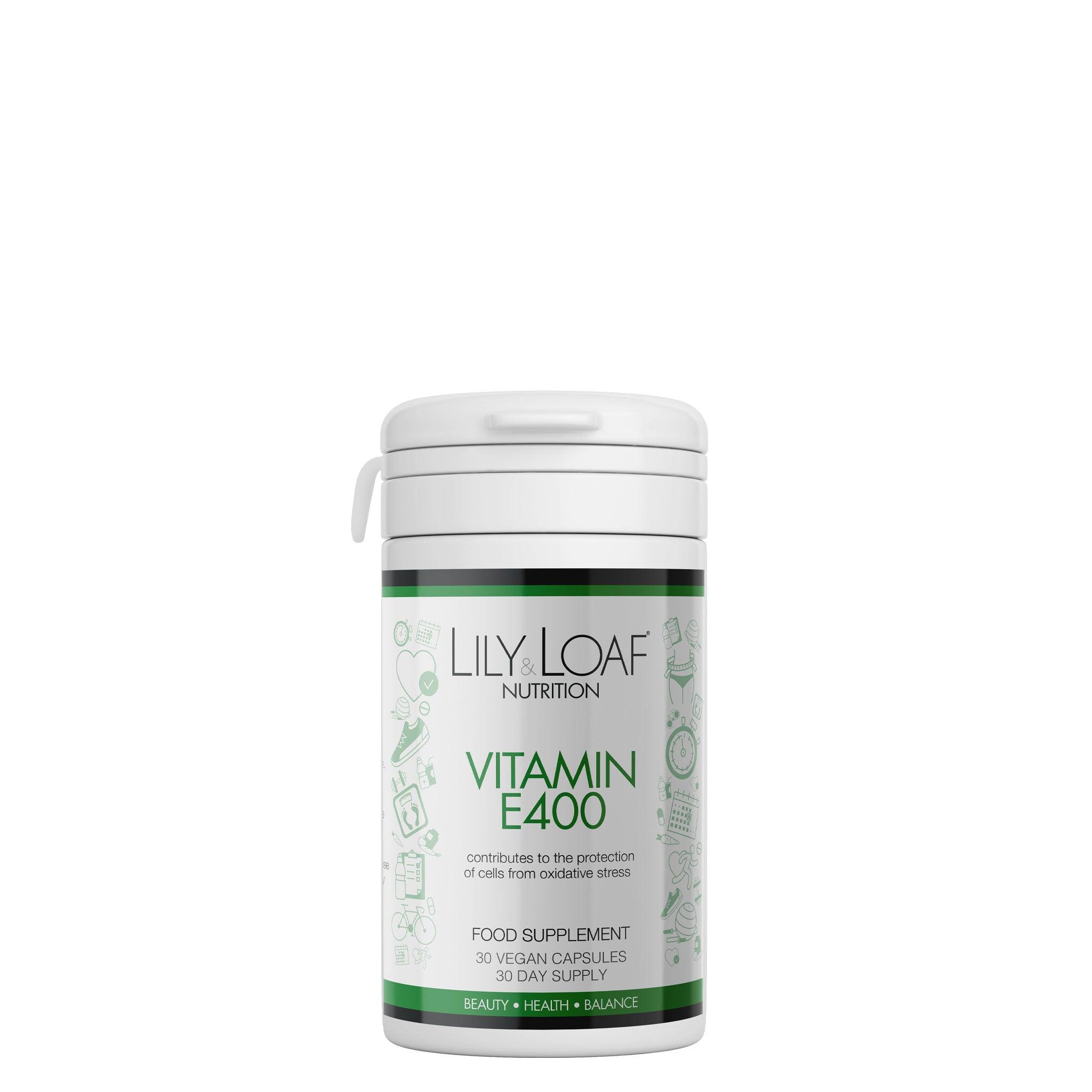To maintain good overall health and wellbeing, we need the right amounts of vitamins and minerals, amino acids, fatty acids and other nutrients every day to support all the body’s key functions.
However, for many people, getting the right amount of nutrition from food alone can be challenging.
Nutritional supplements are designed to provide you with any nutrients missing from your diet or that you’re not consuming in sufficient quantities. Supplements come in the form of tablets, capsules, powders and liquids. They are designed to complement your diet and top up any shortfalls – or address any deficiencies – of specific nutrients There are many different nutritional supplements available. Some are synthetic, meaning the nutrients they provide have been created in a laboratory or industrial process, while some are natural, meaning they are derived from natural sources or ingredients.
In this blog, we outline the reasons why natural supplements are so important.

WHY ARE NATURAL SUPPLEMENTS IMPORTANT?
Natural supplements are important for many reasons. They can help top-up any nutritional shortfall from your daily diet, provide specific support for your key body systems and generally improve your overall health and wellbeing.
Here are some of the top reasons why natural supplements are so important.
Maintaining nutritional balance
Modern lifestyles and diets mean that around 90% of us don’t get our full recommended daily amount of nutrients from our food.
Natural supplementation can bridge the gap and top up any nutritional shortfall.
If your diet lacks specific nutrients or has a vitamin or mineral deficiency, then natural supplementation can help ensure you get the right amount every day.
In more general terms, supplementation can enhance your diet’s nutrient density to ensure your body is getting a good balance every day to maintain better health and wellbeing.
Tackling malabsorption
As you get older, your body’s ability to absorb the nutrients it needs from food declines.
The problem, called malabsorption, occurs because the rate at which your body produces digestive enzymes which break down and absorb nutrients from your diet slows down.
The problem can be compounded by medication and digestive health issues, which can deplete your essential nutrient stores. Natural supplements can help restore nutritional balance as you age.
Fight back against harmful chemicals
Airborne pollutants, the pesticides and herbicides used in food production and chemical additives in the water supply all increase your body’s need for extra vitamins and minerals.
These harmful toxins, which come from our environment, diet and lifestyle, create substances called free radicals, which attack the digestive and immune systems and damage cells. Natural supplements containing antioxidants help fight free radicals and undo the damage caused by oxidative stress.
Supplement your fitness regime
If you want to stay fit and healthy, then you must do some form of regular exercise. However, frequent physical activity means your body uses energy and essential nutrients to promote recovery after running, swimming, or a workout.
So, it’s vital that you top these nutrients up after exercising to help your body do its job. Carbohydrates and protein are an essential part of a balanced diet, but ensuring you get the right nutrients to maintain your fitness level is vital.
Poor diet and lifestyle
If you eat a diet that’s high in processed food, refined carbohydrates and unsaturated fat, chances are, your body won’t be getting the nutrition it needs to stay healthy.
Similarly, if you smoke, regularly consume alcohol or suffer from stress, these can also increase the amount of harmful free radicals in your body and lead to long-term health problems. And if you have poor digestive health, your body will struggle to extract all the nutrients it needs from food. As we said earlier, this can get worse with age.
While natural supplementation cannot replace all the benefits of eating healthily, it can help address some of your nutritional shortfalls and help undo some of the damage caused by poor eating habits.
There is no substitute for fresh fruit and vegetables, lean proteins, complex carbohydrates and healthy, unsaturated fat, so you should look to incorporate these into your diet if you want to maintain optimal health. Beyond that, supplementation can help enhance the benefits.
Prevent long-term health issues
Prevention is better than cure, and looking after your health will pay dividends in the long run.
Getting plenty of exercise, staying hydrated, eating healthily, cutting back on guilty pleasures and avoiding stress are the cornerstones of overall health and wellbeing.
Taking daily natural supplements to complement your diet can help ensure your body is getting the nutrients it needs to slow the onset of age-related health conditions and even prevent potential health problems from developing.

TAKE OUR LIFESTYLE ANALYSIS
With so many supplements on the market, targeted at a wide range of health and lifestyle issues, it can be difficult to know where to start. If you’re new to natural supplementation and aren’t quite sure which products might be right for your needs, our online Lifestyle Analysis can help.
It’s a simple tick box exercise that takes just a few minutes to complete and will give you a clear overview of how each of the key body systems is performing and which ones might need support.
Developed by our in-house team of health specialists, our Lifestyle Analysis is designed to give you a quick and easy way of discovering where you most need nutritional support and recommend the natural supplements which can help restore balance.
To take the test, head to our Lifestyle Analysis page for more information.
Check out these links to find out more:
Disclaimer:
Information and other content provided in Lily & Loaf blogs should not be construed as medical advice and should not be considered a substitute for professional medical expertise. If you have any medical concerns, you should consult with your health care provider.









.jpg)











